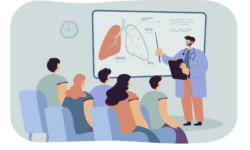Understanding Pre-Heart Attack Symptoms & Hypertension in Women

It’s a well-established fact that cardiovascular diseases, including hypertension and heart attack, have different manifestations in women compared to men. Yet, the understanding of these symptoms remains largely ignored, leading to delayed or incorrect diagnoses. As a result, cardiovascular diseases have become the leading cause of death among women worldwide.
This article aims to shed light on the silent signs of hypertension – often referred to as “the silent killer” – and pre-heart attack symptoms in women.
Understanding Hypertension
Hypertension, or high blood pressure, is a cardiovascular condition characterized by persistently elevated pressure in the arteries. Due to this excessive pressure, the heart is required to work harder than normal to circulate blood throughout the body. Over time, this added strain can cause the heart to enlarge and weaken, leading to potential health complications.
Hypertension often manifests without clear symptoms, leading to its notorious moniker, “the silent killer.” It’s a pivotal risk factor for severe health complications, including heart disease, stroke, and kidney disease.
This silent aspect of hypertension underscores the necessity of regular health checks, as these allow for early detection and management, aiding in the prevention of associated complications.

Common Risk Factors for Hypertension in Women
Hypertension, like many health conditions, does not materialize in a vacuum. A combination of genetic, lifestyle, and environmental factors come into play, creating a landscape where this silent killer can take root.
For women, these risk factors are intertwined with our unique biological and hormonal makeup, underlining the importance of a gender-focused approach to understanding and managing hypertension.
The key risk factors include:
- Age: As we age, our blood vessels naturally harden and lose some of their elasticity, making it harder for the blood to travel smoothly, leading to increased pressure. The risk amplifies after menopause due to hormonal changes that can affect blood pressure;
- Family history: Genetics plays a significant role in our health, including blood pressure. If your parents or siblings have hypertension, you’re more likely to develop it;
- Obesity: Excess body weight means your heart has to work harder to pump blood, which increases pressure on your artery walls and leads to hypertension;
- Sedentary lifestyle: Inactivity can lead to a higher heart rate and weight gain, both of which increase blood pressure;
- Tobacco and alcohol use: Both these substances have harmful effects on your cardiovascular system. They raise blood pressure and can damage your arterial walls, leading to further complications;
- Chronic conditions: Certain health conditions like kidney disease, diabetes, and sleep apnea can raise your blood pressure. These conditions often require separate management strategies but controlling them can help manage hypertension as well;
- Hormonal contraceptives: Some women might experience an increase in blood pressure when using certain birth control pills.
Understanding these risk factors can empower you to take control of your health. Regular check-ups, a healthy lifestyle, and awareness of body changes form the triad of managing these risks effectively.
Diagnosing Hypertension
The diagnosis of hypertension typically follows multiple high blood pressure readings recorded on different occasions. Blood pressure, measured in millimeters of mercury (mm Hg), is expressed as two values.

For example, a reading might be presented as 120/80 mm Hg. The first value represents the systolic pressure, which is the force exerted on artery walls when the heart beats, while the second value represents the diastolic pressure, the force when the heart is at rest between beats.
If readings consistently show values of 130/80 mm Hg or higher, a diagnosis of hypertension is generally made. Regular health check-ups are therefore vital for early detection and management.
Tips and Recommendations for Women
Given the unique risk landscape for women, adopting specific strategies can greatly reduce the risk of developing hypertension. Each tip focuses on enhancing overall wellness while specifically targeting blood pressure control:
Regular physical activity: Physical activity helps to strengthen your heart, reduce stress, and maintain a healthy weight. Aim for a mix of cardio, strength training, and flexibility exercises for a comprehensive workout routine.
- Regular physical activity: Include physical activities that you enjoy and which can easily be incorporated into your daily routine. Whether it’s brisk walking, gardening, or a morning swim, consistency is key;
- Balanced diet: Opt for a diet abundant in colorful fruits and vegetables, lean proteins, and whole grains. Try to minimize processed foods which often contain hidden salts and sugars;
- Maintain a healthy weight: Keeping within a healthy weight range is essential. If weight loss is required, aim for gradual, sustainable changes with the support of a healthcare professional;
- Mindful alcohol consumption: While a glass of red wine may be beneficial for heart health, moderation is crucial. Excessive alcohol can lead to various health complications, including elevated blood pressure;
- Tobacco cessation: Tobacco in any form contributes to hypertension and overall cardiovascular risk. If you’re a smoker, seek professional help to quit, and stay clear of secondhand smoke whenever possible;
- Regular health checks: Prevention is better than cure, so get your blood pressure checked regularly. A simple, quick, and painless test can be the first step in preventing serious health issues;
- Hormonal health awareness: Women using hormonal contraceptives should have regular blood pressure checks, as some of these medications can contribute to increased blood pressure.
These strategies, when adopted and maintained, can have a significant positive impact on your heart health. It’s important to remember that health management is personalized, and these strategies should be tailored to your lifestyle, preferences, and specific health needs.
Preventing Hypertension
Prevention of hypertension lies in the adoption of healthy lifestyle habits. It is not a single battle but a constant commitment to your health.
Here are some strategies to consider:
- Regular exercise: Find a form of exercise that you enjoy and can maintain long-term. This could be dancing, cycling, or even a daily walk with your dog. The important thing is to keep moving;
- Balanced diet: In addition to the advice above, consider cooking at home more often to control the ingredients and portion sizes. Be mindful of the sodium content, not just in your salt shaker, but in sauces, condiments, and preserved foods;
- Healthy weight maintenance: Once a healthy weight is achieved, maintaining it is equally important. This involves a balance of healthy eating and regular physical activity, and also appreciating the body you are in;
- Alcohol and tobacco avoidance: Completely avoid tobacco, and if you drink alcohol, do so in moderation. Be aware of the alcohol content of different drinks and alternate with water or other non-alcoholic beverages;
- Stress management: Incorporate relaxation and stress-relieving activities into your day. This might be reading, gardening, yoga, or simply having a quiet cup of tea;
- Regular health screenings: In addition to monitoring blood pressure, regular health screenings can help detect and manage other risk factors such as diabetes and high cholesterol;
- Sound sleep: Sleep is often overlooked as a health strategy, but quality sleep is vital for overall health and can assist in maintaining healthy blood pressure.
A proactive approach to prevention is a powerful weapon against hypertension. Remember, these strategies work best when used together, creating a comprehensive and holistic plan for your heart health.
Key Takeaways
| Points | Descriptions |
|---|---|
| Understanding Hypertension | Hypertension, the silent killer, is a serious health condition with the potential for severe complications. |
| Risk Factors | Age, family history, obesity, sedentary lifestyle, tobacco and alcohol use, chronic conditions, and certain contraceptives can increase the risk. |
| Diagnosis | Regular health check-ups and blood pressure monitoring are key for the early detection and management of hypertension. |
| Tips for Women | Regular physical activity, a balanced diet, maintaining a healthy weight, limiting alcohol, avoiding tobacco, and regular check-ups can reduce hypertension risk. |
| Prevention | Regular exercise, a balanced diet, maintaining a healthy weight, limiting alcohol and tobacco, stress management, and regular screenings can help prevent hypertension. |
| Summary | A proactive approach, including understanding risk factors, following healthy lifestyle habits, and regular health screenings, are critical to preventing and managing hypertension. |
Conclusion
As we navigate the maze of women’s health, understanding hypertension emerges as a cornerstone. This often-underestimated condition, aptly named “the silent killer,” requires us to tune in closely to our bodies and our lifestyle habits. The risk factors, though diverse – age, genetics, lifestyle choices, concurrent health conditions, and even our choices in birth control – all shed light on the intertwined relationship between our choices and our cardiovascular health.
Recognizing the insidious nature of hypertension, we underscore the importance of proactive health management. This involves understanding your own risk factors, tracking potential symptoms, and adopting preventive strategies tailored to your personal circumstances. Diet, physical activity, weight management, tobacco and alcohol consumption, and stress management – each play a significant role in this health jigsaw. And the challenge is not only in adopting these strategies but also in maintaining them over time for sustained health benefits.
Regular health check-ups remain an indispensable part of this prevention strategy. They enable early detection of any worrying trends in blood pressure and facilitate timely intervention. For women, these check-ups also offer opportunities for discussing other health issues, hormone changes, and lifestyle adaptations that might impact blood pressure.
In conclusion, we stress that tackling hypertension is not a solitary journey but a shared responsibility. It demands open conversations with healthcare providers, community support for healthy lifestyle choices, and an empowering health education system focusing on preventative health strategies. And, above all, it needs women to prioritize their health, listen to their bodies, and believe in their ability to prevent and manage hypertension. In this battle against hypertension, knowledge is indeed our most potent weapon. With it, we can protect our heart health and pave the way for a healthier future.








